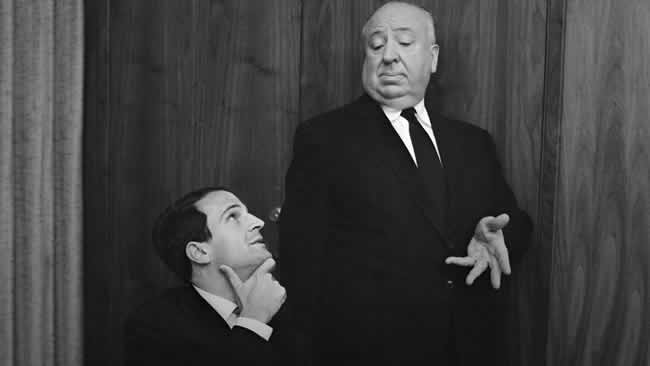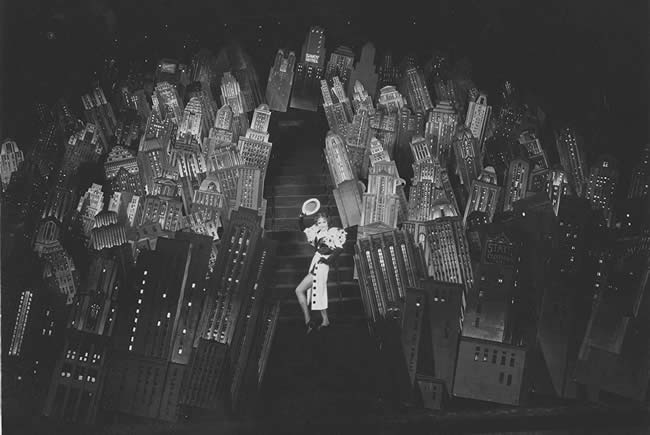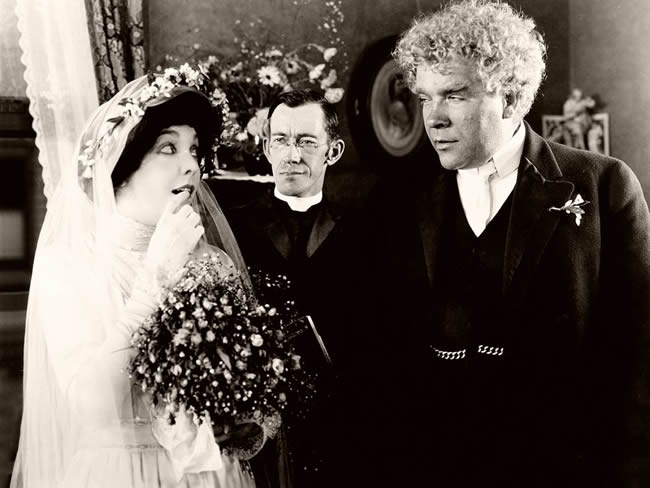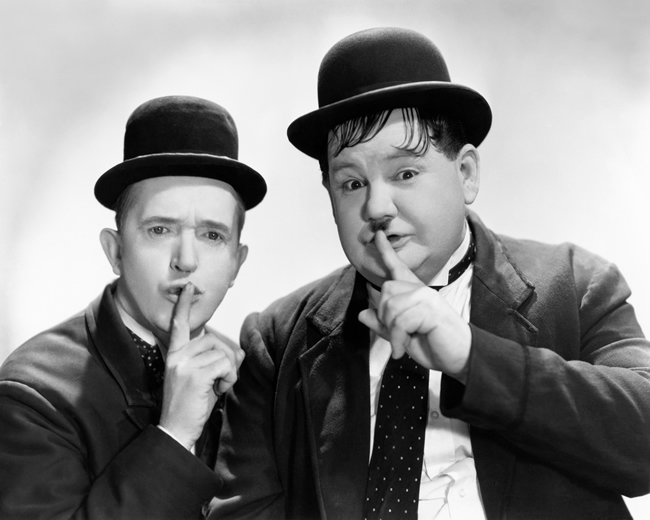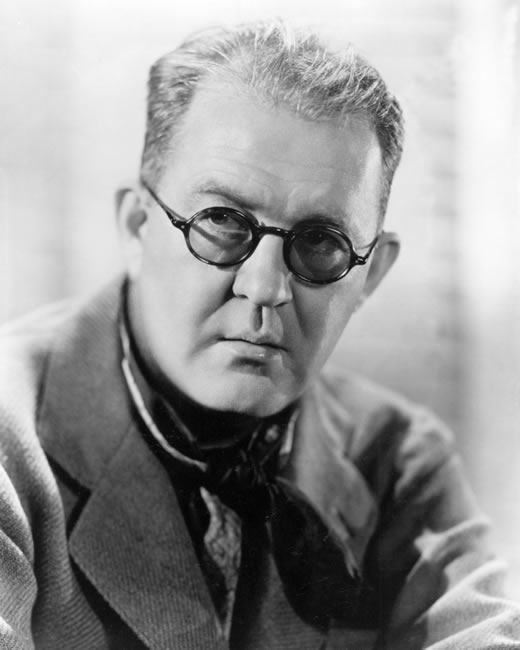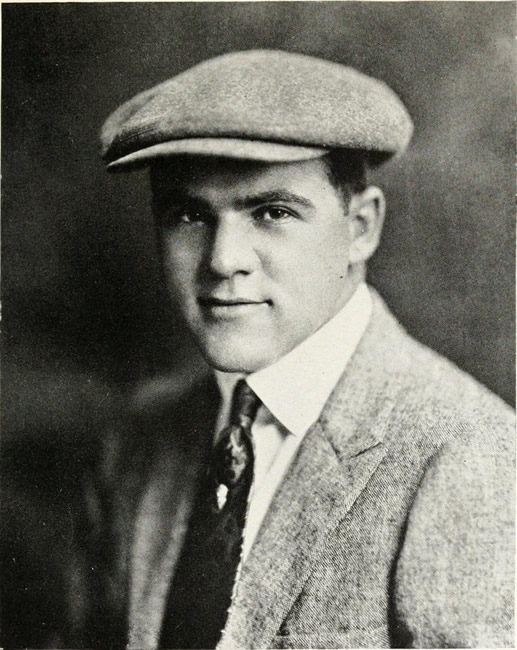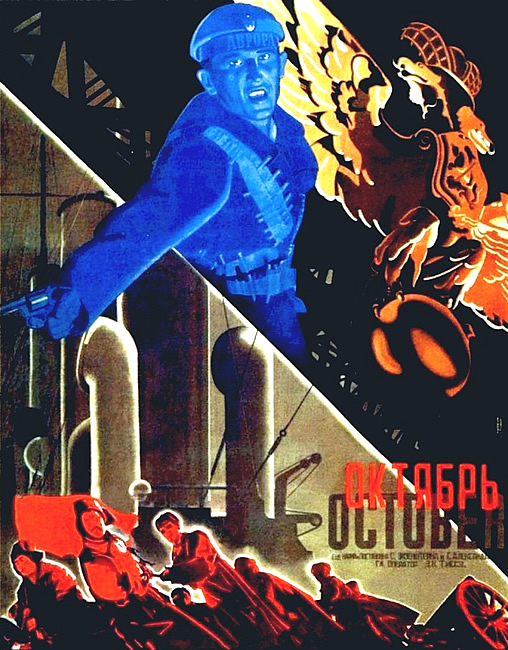
Poster for October (1927)
This silent Russian film by Grigori Aleksandrov and Sergei M. Eisenstein was commissioned for the tenth anniversary of the Soviet revolution. While Eisenstein’s Battleship Potemkin (1925) is considered to be one of the most innovative films ever made, October is even more daring in its approach.
In a letter to Leon Moussinac dated December 16, 1928, Eisenstein wrote that “in this film that is so much of the ‘people,’ of the ‘masses,’ I allowed myself to experiment.” Later in the letter, he wrote, “October is the dialectical denial of Potemkin! And the main interest of October is in the bits and pieces which do not resemble the ‘Battleship.'”
